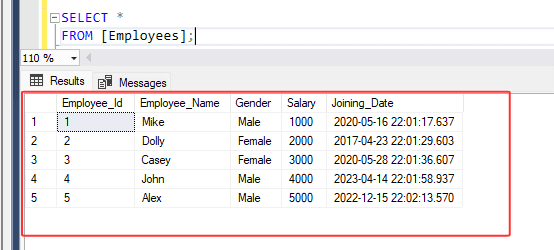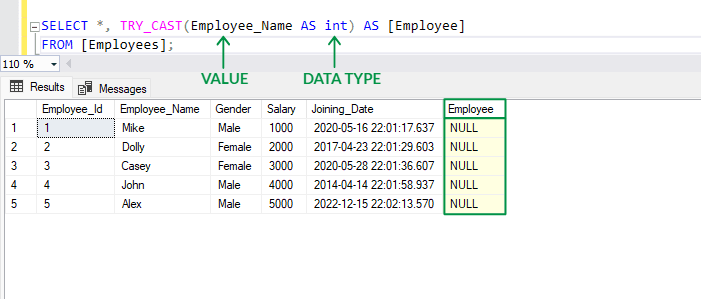Text copied!
TRY_CAST function
In SQL, TRY_CAST function is used to convert a value from one data type to another data type and handle errors by returning NULL if a cast operation fails.
The syntax of the TRY_CAST function generally looks like this :
TRY_CAST(expression AS data_type)
• Specify the 'expression/value' that you want to convert from one data type to another.
• Specify the desired 'data type' to which you want to convert the value or expression.
Here's an example of how you might use the TRY_CAST function :
1. Let's assume we have a table named "[Employees]".

2. Let's assume you want to convert the Employee_Name values into 'INT' data type, which doesn't make sense. However, this example illustrates that the CAST function will raise an error when attempting this conversion, while the TRY_CAST function will not throw an error and will instead return NULL as the result.
3. Run below SQL statement :
SELECT *, TRY_CAST(Employee_Name AS INT) AS [Date]
FROM [Employees];
4. In above statement, TRY_CAST function tries to convert the Employee_Name values into 'INT' data type and returns NULL if conversion fails.

Remember :
Using this function in a select statement won't modify the [Employees] table directly, but it will only be reflected in the select statement's output.